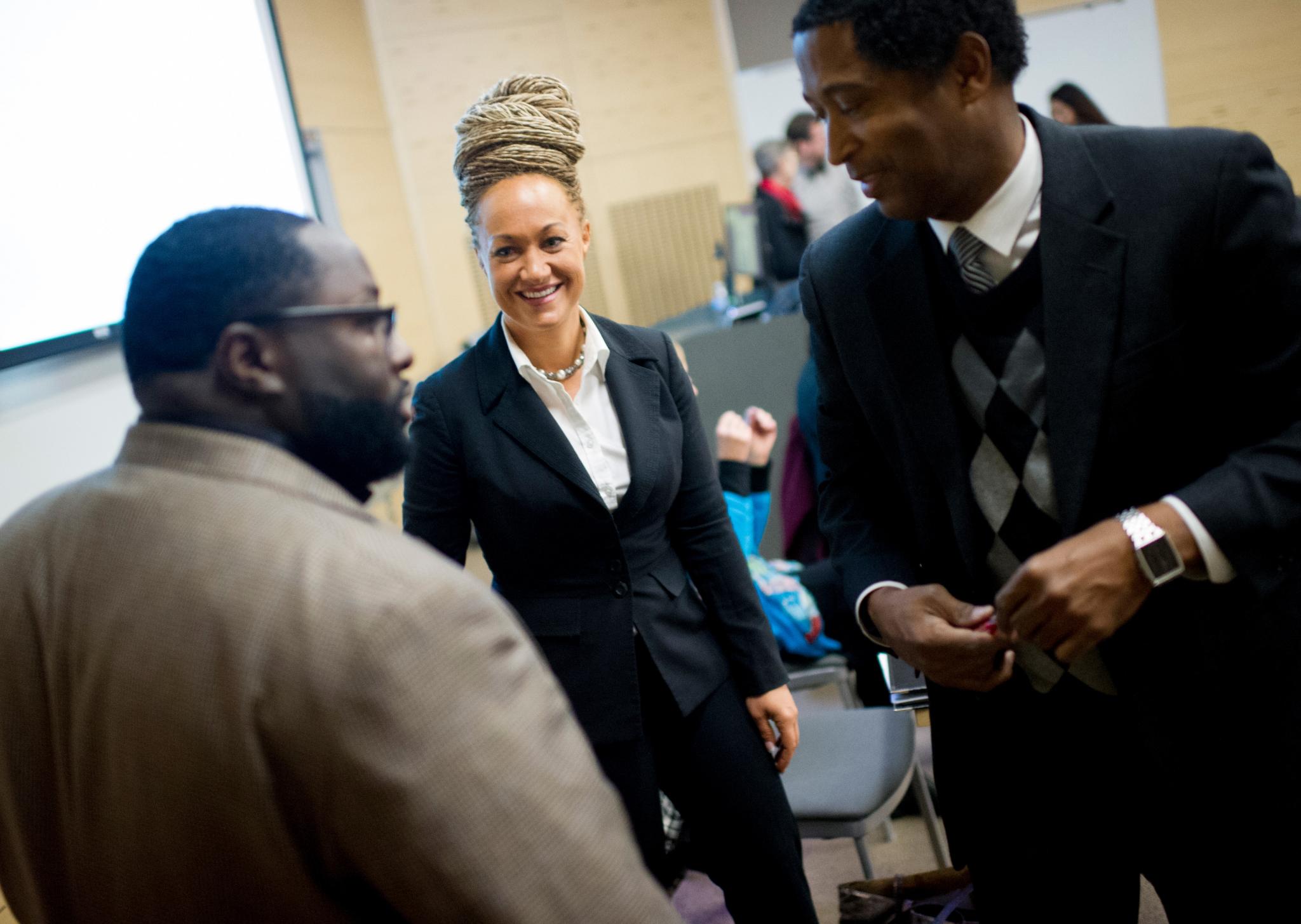
The news of Washington state civil rights activist Rachel Dolezal lying about her ethnicity has everyone talking.
Dolezal, the president of the Spokane NAACP chapter, first came under scrutiny when she applied to serve as the city’s police ombudsman. According to local TV station, KXLY, the City of Spokane then began investigating her claims of receiving death threats. Furthermore, she claimed she was an African-American woman on her application for ombudsman, despite public records and a birth certificate showing that she was born to Caucasian parents.
For years, Dolezal has been passing herself as a Black woman. She received a Masters degree from Howard University and is a professor of Africana studies at Eastern Washington University. She has marched on the frontlines of protests and has generally been an outspoken civil rights activist, all the while sporting bronzed skin and Black hairstyles such as box braids or natural weaves.
As the story continues to develop, we have questions that we need answered to help us understand the thinking behind—and implications of—a racial deceit.
1. Why is this secret just coming out now?
For friends and family who knew the history of Rachel Dolezal’s upbringing all these years and watched her work in the public eye, why speak out now? Is there something more to the timing of this reveal? Is the motivation more than family drama?
2. What did she do to her hair?
Self-tanner is one thing, but faking a Black woman’s curl pattern and texture (and getting box braids) is another. We’re curious what steps were taken on her part to deliberately appear to be a woman of color.
3. If she had been honest about being a White woman all along, would we care that she dressed/styled herself like a Black woman?
We might’ve been a little peeved at her adoption of our culture, but we still would have commended her for being an ally.
4. What will her tarnished public image do to the legacy of her work?
Dolezal has been fighting on the front lines of major moments in the #blacklivesmatter campaign. That’s still important. It’s not a joke.
5. Does this make an argument for what it means to be Black?
If she isn’t someone who wears black face at work and returns home to enjoy a life of white privilege, can we really discredit how she views herself?
6. Is it possible to embrace her as she is (Howard education, laid edges, box braids and all), or is her experience null and void simply because she wasn’t born in a Black skin?
Now that she is exposed, it’s likely that her existence will be seen as a joke. But does that mean that we should discredit her work?
7. Who is the victim here?
After being outed by her parents, should we sympathize with her for having her cover blown and possibly being outcasted by those whom we assume she identifies with? Or should we feel betrayed by her “#Transracial“ ways?
8. Why not be honest about your heritage and still commit as passionately to the civil rights cause?
In our fight for civil rights, we need allies that transcend colorlines. She might have had an even larger effect on the cause if she pursued her work as a White woman.
9. What on earth possessed her to do something like this?
In the age of Google and social media, why does anyone think they can get away with lying about anything? We’ve learned that nothing is secret, and this lie was nothing more than a ticking timebomb.
10. What is her definition of race and ethnicity?
She made a comment previously that she didn’t want to explain anything “to a community that I, frankly, don’t think understands the definitions of race and ethnicity.” So if that’s how she feels, how would she define the words?
11. Where does this leave her?
She has made international news for being a fraud. Although the NAACP has issued a statement standing beside her, will she continue to pursue her civil rights activism, or lay low from here on out?
We know you have questions and thoughts about Rachel Dolezal. Share them below.